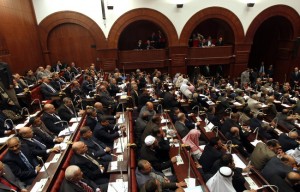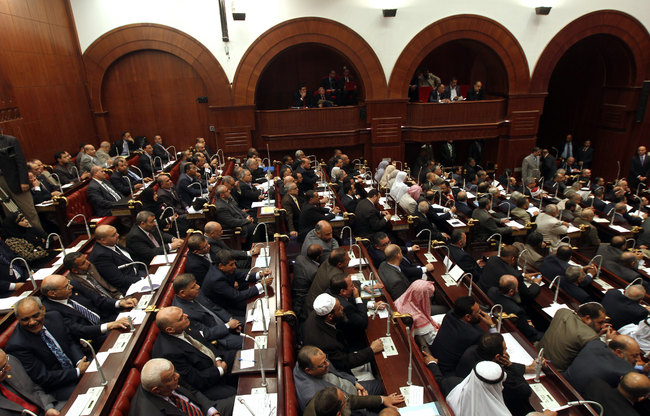
(AFP File Photo)
By: Ibrahim Al-Masri
A Shura Council committee has requested that additional funds be provided to the country’s public health budget. The committee consists of members of the Shura Council’s Financial and Economic Affairs Committee and the Health, Population and Environment Affairs Committee.
Members requested that steps be taken to ensure that investments made in Egypt’s health sector be distributed fairly throughout the country, stating that some governorates suffer from severe shortages in medical supplies.
Shura Council members stated that money allotted to the public health sector has often been allocated to repair vehicles.
Abdel Ghafar Salihin, chairman of the Health, Population and Environment Affairs Committee, stated during the joint committee meeting that while the country’s health budget may appear to be large, totalling EGP 32bn and amounting to 4.9% of the country’s total budget, it is actually small compared to that seen in most other countries.
He added that the Shura Council’s goal is to increase the size of Egypt’s health sector to make up 12% of the country’s budget within the next five years.
Salihin added that funds for the EGP 32bn health sector budget did not come exclusively from the public budget, but are also supplemented by donations from individual citizens and a number of private funds.
The committee chairman added that there was a lack of coordination in the drafting of Egypt’s health sector budget, as no specific plan had been laid out by the Ministry of Health.
Salihin added that investments made in the country’s health sector needed to be equally distributed throughout all of Egypt’s various governorates, particularly its border provinces, most of whom suffer from severe shortages in medical supplies.
He stated that there is a deficit in the amount of money paid towards purchasing and providing medical supplies. This comes at a time when Egypt has been paying an estimated EGP 47,000 to repair individual worn down vehicles.
Salihin added that many of Egypt’s medical service convoys have long operated on a for-profit system, and as a result should be cancelled or redirected to governorates where their services are more needed. Use of such convoys, he said, was particularly unsound during the days of the former regime.
Regarding the state of government wages as provided in the national budget, Salihin said such earnings usually fall into two categories: The first being those that genuinely do need to be increased, and the second those that are paid for through private funds. He stated that nearly 48% of Egyptian government wages fall into this second category, and called for such earnings to be incorporated into the public budget.
He called on all Shura Council members to work to increase the amount of funding provided to the public health sector.



